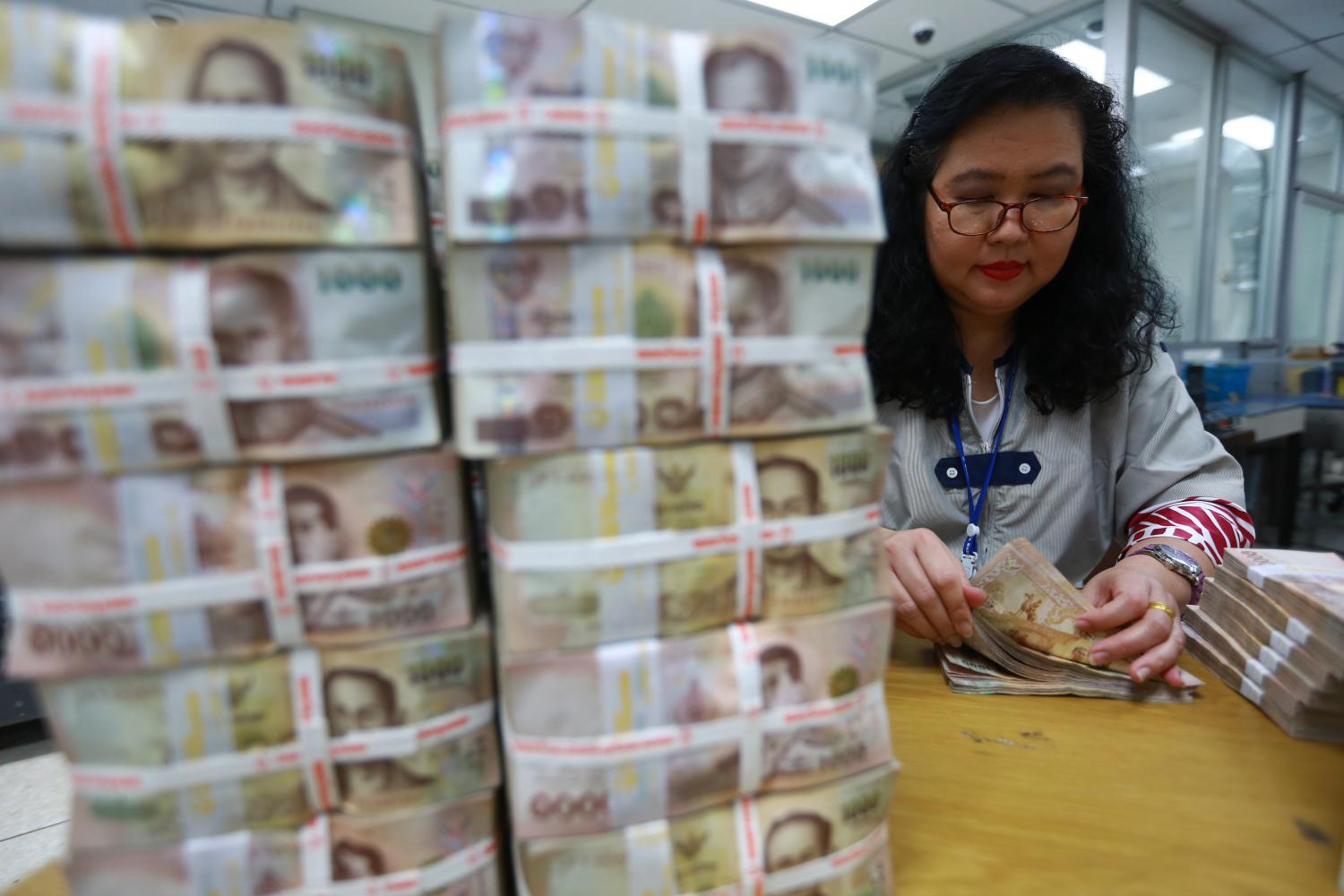Business
Thailand’s Baht One of the Worst-Performing Regional Currencies of 2023

Thailand’s baht has fallen in value this year, making it one of the worst-performing regional currencies in 2023. On Tuesday, the currency fell to 37.14 per US dollar, its lowest level since November 2022.
The recent drop in gold prices, which lost almost 5% of their value, or $7.45 per ounce, increased demand for dollars to acquire the commodity, causing the Thai baht to depreciate even further.
The baht has lost almost 6.8% of its value this year, falling from 34.61 to the US dollar at the end of last year. When compared to its regional peers, the Thai baht is the third poorest performer this year, trailing only the yen and the Korean won, which have fallen by 12% and 7.7%, respectively.
The Malaysian ringgit has fallen in lockstep with the Thai baht, losing 6.8% year to date.
“But if we look at depreciation since August, when the new government took office, the decline has been faster than other currencies in the region,” Kanjana Chockpisansin, head of research at Kasikorn Research Centre (K-Research) told the Bangkok Post.
The think tank cut its forecast for the Thai currency rate to 37.55 baht to the dollar on Tuesday, down from 36.60. According to her, the centre made the change when the baht plummeted past 37 to the US dollar on Tuesday morning.
Central Bank Monitoring Baht
The Bank of Thailand stated that it is watching baht movement as a result of external factors, which is consistent with regional peers. The central bank stated in a statement that it is ready to handle the currency if there are any abnormal movements, and that investors are waiting for clarification on the incoming government’s budgetary intentions.
“The dollar is strengthening because the Federal Reserve may keep interest rates on hold for longer than expected,” said Sakkapop Panyanukul, senior director of the central bank. Other issues, he noted, include pressure from dropping gold prices and rising oil prices.
According to K-Research, main causes contributing to the baht’s depreciation include a dismal second-quarter Thai GDP growth rate, interest rate hikes by the Fed, a slowing Chinese economy, yen depreciation, and high oil costs.
Thailand’s export decrease, which has resulted in a growing current account deficit, as well as concerns over a worsening fiscal position due to increased spending by the new administration to fund economic stimulus, have all contributed to the Thai currency’s devaluation, according to the think tank.
A recent hawkish comment by Fed members about interest rates remaining higher for prolonged periods of time pushed the currency higher and caused US bond yields to climb.
The Fed could raise interest rates
The US economic data was stronger than expected, convincing the market that the Fed could raise interest rates at its November or December meetings. As part of its efforts to reign in stubborn inflation, the Fed has raised interest rates 11 times in the last 18 months to 5.25-5.5%, a 22-year high. In August, the US consumer price index was 3.7%, significantly above the Fed’s 2% objective.
Oil prices above $90 per barrel have fueled inflation and demand for dollars, weakening the baht. According to K-Research, Thailand’s current account could suffer if oil prices continue high.
According to the think tank, continued capital outflows from the Thai Stock Exchange (SET), which is among the world’s worst-performing bourses this year, as well as the Thai bond market, partially to buy US bonds, have fueled the baht depreciation.
According to K-Research, as of October 2, foreigners have net sold 158 billion baht worth of Thai stocks this year, while net selling in the bond market totaled 146 billion baht.
According to Asia Plus Securities (ASPS), the baht has depreciated this year as a result of 300 billion baht in accumulated foreign net selling as of Tuesday, of which 160 billion is in equities and 140 billion is in bonds.
Interest Rates in Thailand
The interest rate differential between the United States and Thailand has grown, with the US presently at 5.5% and Thailand at 2.50%. According to the brokerage, Thai exports have dropped this year due to the global economic slowdown, resulting in a trade imbalance in August.
While the central bank is monitoring currency fluctuations, Prime Minister Srettha Thavisin, who is also the finance minister, has ruled out government involvement in the baht.
According to Mr Srettha, the depreciation boosts the export and tourist sectors, which typically contribute 50% and 20% of GDP, respectively.
He believes that a weak baht will raise the price of imported oil and other related costs. Thailand cannot do much in the short term to avoid the impact of rising energy prices because the country is significantly reliant on imported energy, according to Mr Srettha.
According to ASPS, the local currency will weaken less and gain more, trading in a range of 35-35.5 baht to the dollar.
Economic stimulus measures such as the 10,000-baht digital wallet giveaway, a three-year debt moratorium for farmers, and infrastructure investment, according to the brokerage, should increase consumption and investment.
According to ASPS, tourism should perform well in the fourth quarter because it is peak season, boosting demand for the baht.
According to the brokerage, economic numbers are likely to improve in the fourth quarter, with the trade deficit shrinking and the services balance improving, resulting in a current account surplus and strengthening the baht, as it did in September 2022.
According to ASPS, the baht strengthened by 3.4% on average in the fourth quarter from 2017 to 2022.
“The currency is expected to stop depreciating and start strengthening in the fourth quarter, swinging around 37.00-37.50 baht to the dollar in the short term,” the brokerage stated.
According to Ms Kanjana, K-Research expects the baht will trade at its present level in the immediate future.
“Once the Fed stops hiking rates, possibly by the end of this year, the baht should strengthen, possibly by year-end or early next year,” she stated.






























